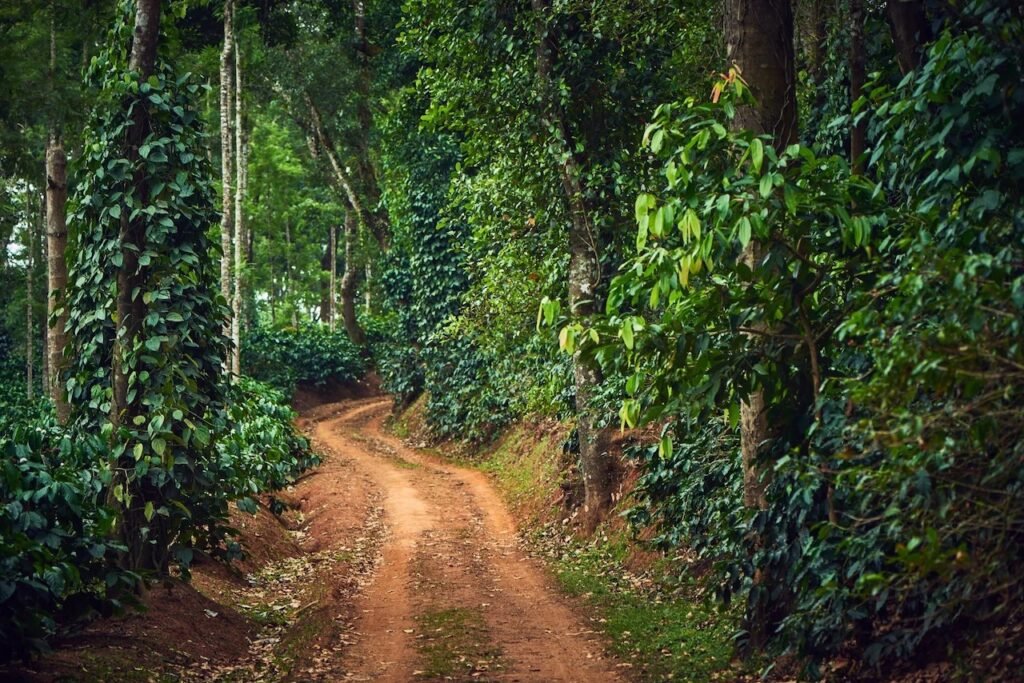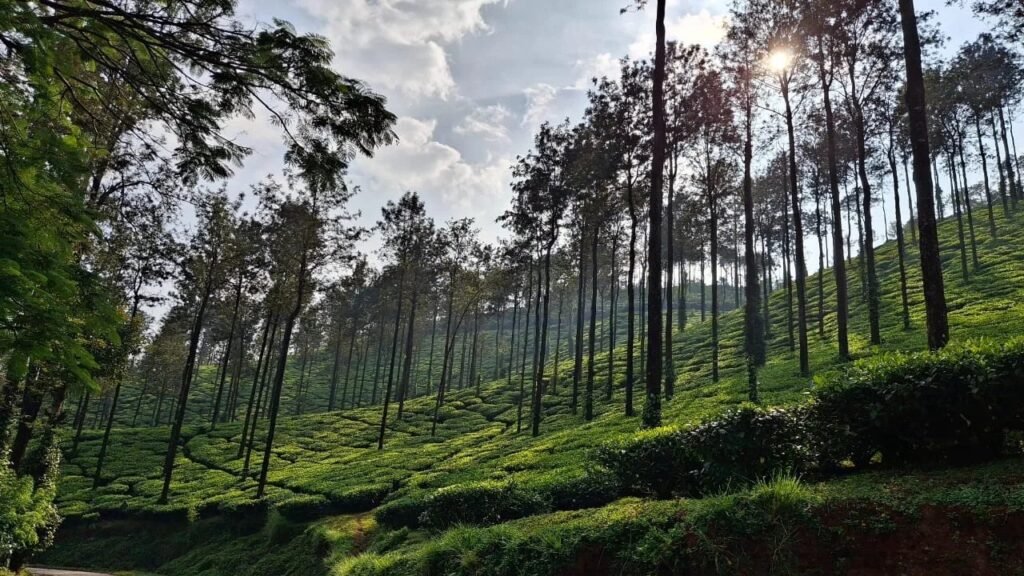Chikmagalur is a renowned hill station nestled in Karnataka, celebrated for its lush coffee plantations, scenic landscapes, and rich history. This comprehensive guide explores Chikmagalur’s history, culture, tourist attractions, routes, revenue, and location, and answers common FAQs, providing a complete overview for travellers and researchers alike.
Introduction to Chikmagalur
Chikmagalur, meaning “Young Daughter’s Town,” is famous as the birthplace of Indian coffee and as the gateway to the Western Ghats. Situated at an elevation of 1,090 metres, it enjoys a pleasant climate year-round and draws thousands of tourists seeking serenity and adventure.
Major Tourist Attractions
It is blessed with numerous natural and cultural sites that draw travellers seeking scenic beauty, adventure, and spiritual solace.
Popular Places to Visit
- Mullayanagiri: Karnataka’s highest peak, popular for trekking and panoramic views.
- Baba Budangiri: Historic mountain range and pilgrimage site, known for its coffee legacy.
- Hebbe Falls: A picturesque waterfall amidst dense forests.
- Kemmangundi: A scenic hill station with gardens and hiking trails.
- Kudremukh National Park: Famous for its lush greenery, trekking paths, and biodiversity.
- Bhadra Wildlife Sanctuary: Home to tigers, elephants, leopards, and countless bird species.
- Manikyadhara and Kalhatti Falls: Renowned for their beauty and accessibility.
- Coffee Museum: Offers insights into the history and process of coffee cultivation in the region.
- Z Point and Kavikal Gandi Viewpoint: Spots for stunning valley vistas and sunsets.
How to Reach Chikmagalur
It is accessible by road, rail, and air. Its connectivity makes it a popular weekend destination for residents of Karnataka and neighbouring states.
By Road
- NH 75: The most popular and well-maintained route from Bangalore via Kunigal, Hassan, Belur.
- NH 75 & 73: Slightly longer, passing through Tiptur and Halebid.
- NH 48: The longest route via Tumkur and Kadur.
Travel time from Bangalore is typically about 5 to 6 hours, depending on the route and traffic.
By Rail
Nearest railway station: Chikmagalur Railway Station, with connectivity to major cities.
By Air
Nearest airport: Mangalore International Airport, approximately 170 km away. Taxis and buses are available for onward travel.
Location and Geography
Located in the Malenadu region of Karnataka on the Deccan plateau, it is surrounded by hills, dense forests, and pristine rivers such as the Tunga and Bhadra. The coordinates are approximately 13°18′47″N 75°44′13″E. The district enjoys a tropical rainforest climate, with cool winters and moderate summers, making it ideal for hill station getaways.
- Distance from Bangalore: about 240 km
- Distance from Mysore: 183 km
- District’s highest peak: Mullayanagiri at 1,926 m, the tallest in Karnataka
Chikmagalur’s landscape is defined by rolling coffee hills, waterfalls, and wildlife sanctuaries.
History of Chikmagalur
It’s history dates back to the reign of the Hoysala dynasty. According to legend, the town was gifted as a dowry to the younger daughter of the Sakrepatna ruler, inspiring its name. Angadi, situated in the Mudigere taluk, is considered the birthplace of Sala, the founder of the Hoysala dynasty.
Ancient temples like the Amriteshwar Temple in Amrithapura and the Hoysaleswara Temple in Halebidu bear testimony to the region’s historical significance. In 1670, the Sufi saint Baba Budan brought coffee beans from Yemen and planted them in the Baba Budangiri hills, establishing Chikmagalur as the origin of India’s coffee culture.
In recent history, Chikmagalur gained national attention when former Prime Minister Indira Gandhi contested and won elections here in 1978.
Culture and Tradition
Chikmagalur’s culture is a harmonious blend of history, spirituality, and warm hospitality. Festivals such as Dussehra, Datta Jayanti, Deepavali, and Ugadi are celebrated with grandeur, featuring processions, folk music, and dance performances.
Traditional cuisine is rooted in Karnataka flavours, with dishes such as Akki Roti, Kadubu, and local filter coffee reigning supreme. The coffee estates reflect the town’s identity, and the region’s art forms, music, and literature are kept alive through regular events and local participation.

Economy and Revenue
Agriculture, especially coffee cultivation, is the backbone of Chikmagalur’s economy. Chikmagalur is India’s largest producer of Arabica coffee, with over 85,000 hectares under cultivation. Over 15,000 coffee growers contribute an annual production averaging 55,000 MT (metric tons), with 35,000 MT of Arabica and 20,000 MT of Robusta.
Other crops include rice, ragi, pulses, oilseeds, sugarcane, cotton, and tobacco. Tourism is another significant revenue generator, as the district attracts trekkers, wildlife enthusiasts, and culture seekers throughout the year.
Nature and Climate
Chikmagalur experiences a refreshing climate with cool winters (11–20 °C) and mild summers (25–32 °C). Monsoon showers are plentiful, supporting verdant vegetation and year-round rivers. Annual rainfall averages around 1,459–1,925 mm.
FAQs About Chikmagalur
Why is Chikmagalur famous?
Chikmagalur is known for its coffee plantations, scenic beauty, and as the birthplace of Indian coffee culture.
What is the history behind Chikmagalur?
The region was the cradle of the Hoysala dynasty and is named after its legendary gift to a ruler’s daughter. Baba Budan introduced coffee here in the 17th century.
What are the must-visit places in Chikmagalur?
Top attractions include Mullayanagiri, Baba Budangiri, Hebbe Falls, Kemmangundi, Kudremukh National Park, Bhadra Wildlife Sanctuary, and the Coffee Museum.
How do I reach Chikmagalur from Bangalore?
Take NH 75 for the best drive, which takes about 5–6 hours. Rail and air routes are also available through the nearest railway station and Mangalore Airport.
What is the best time to visit Chikmagalur?
September to March is ideal, with pleasant temperatures and minimal rainfall. Monsoon season offers lush landscapes, but it can also be wet.
Is Chikmagalur suitable for family trips?
Absolutely. With varied landscapes, trekking spots, waterfalls, wildlife, and family-friendly homestays, it caters to all age groups.
What is the local cuisine of Chikmagalur?
The cuisine features Karnataka specialities such as Akki Roti, Kadubu, and traditional filter coffee.
How important is coffee to Chikmagalur’s economy?
Coffee is the mainstay of the district’s economy, with over 85,000 hectares in cultivation and the highest Arabica production in India.

1 Comment
Pingback: Bandipur National Park: Karnataka’s Iconic Safari Destination